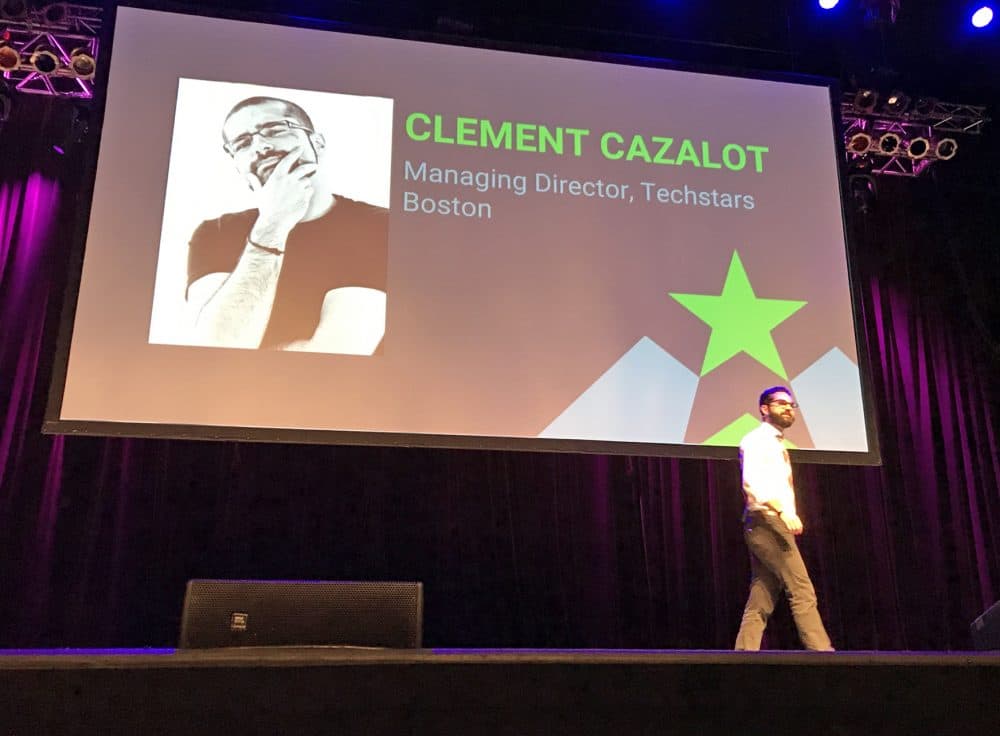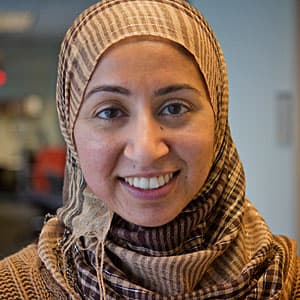Advertisement
Innovator Spotlight
Meet The New Head Of Boston's Most Elite Tech Accelerator

Within the crowded field of incubators and accelerators out there to help infant startups potentially turn into multi-million dollar companies, Techstars is known as one of the most established programs. It's a global brand, but some of the most well-funded startups have come out of the Boston branch.
So it was big news Wednesday when one of the Boston program's alums -- Clement Cazalot — was named the new managing director of the Techstars Boston Accelerator. BostonomiX caught up with Cazalot to find out why he took on this job and what he's hoping to accomplish.
On why he gave up life in the south of France to move to Boston
One of the first things you notice when you meet Cazalot is his rich French accent. He laughs when he compares Boston weather to Saint-Tropez on the French Riviera. There is no comparison, he admits, but he was willing to endure Boston winters for the tech ecosystem here.
"It was a no-brainer that in order to grow successful companies we needed to stay here," he said.
Cazalot's young — 29 — but he has a thick brown beard that disguises his age. He first moved to Boston in 2012 with his company docTrackr, a document security service that was acquired by Intralinks in 2014 for $10 million in cash.
He wanted to stay in Boston after he "graduated" from Techstars, but he wasn't an America citizen, and as we've reported before, life as a foreign entrepreneur is complicated.
"I had to leave the country ... in order to figure out my visa situation," Cazalot recalls. "Although we had funding, we had just raised $2 million, we had employees, I had to go back to Europe."
He said it took him about nine months to figure out a way to return, but he ultimately came back not just to grow his own company but because he saw Boston as one of the "most exciting cities to launch a business today."
On why he wants to lead Boston Techstars
Cazalot had plans to start another company (or two), but the opportunity to lead Techstars was too tempting. "It's just a dream come true ... to be able to have the chance to help companies the same way I was helped by other entrepreneurs," he said.
Techstars next Boston class won't start until January 2018 because Cazalot wants to spend some time thinking through the program and networking with local alums. He says there are over 100 companies representing some 1,000 employees in the Greater Boston area that have graduated from Techstars Boston in recent years. Collectively, they've raised more than $700 million. And Cazalot wants to tap into that community "because they are the ones who were in the trenches not too long ago or still in the trenches creating great businesses."
As he takes the reins, he told BostonomiX he wants to take Techstars Boston in a slightly different direction, focusing less on "proven" concepts.
"What we’re going to try to do is focus more on the diamond in the rough — the early-stage founders that are just out of their postdocs, that are just starting to put everything together," he explained. In other words, he wants Techstars to essentially be the first "senior employee" at a startup so it can help structure an early-stage company.
On why he thinks Boston is one of the best places in the world to build a tech company
"Boston is really good at producing talent," Cazalot said. "That's ... why I stayed in Boston."
He points to the mix of universities, research institutes and companies responsible for fostering talent. In fact, he's eager to quote Facebook CEO Mark Zuckerberg, who in 2011 said that if he were to go back in time and start Facebook from scratch, he would have stayed in Boston.
On the challenges the tech ecosystem here faces
Cazalot admits that Boston has challenges — particularly in retaining the talent that it produces. He worries about people leaving for San Francisco or New York because of a lack of funding or a lack of support.
But his biggest concern is that the Boston tech ecosystem is "highly fragmented" among universities, accelerators, incubators, biotech and traditional tech — and that leads to other problems, with mentorship or money.
"We have amazing talent, we have amazing mentors. And there's a need to connect these two ecosystems," Cazalot said.
